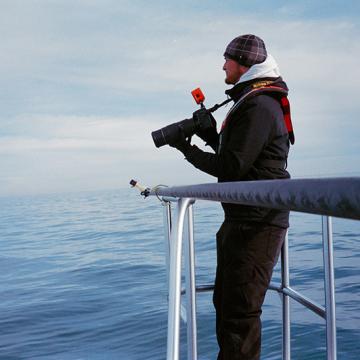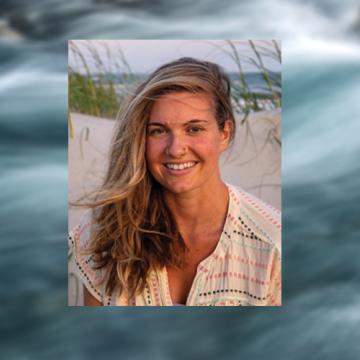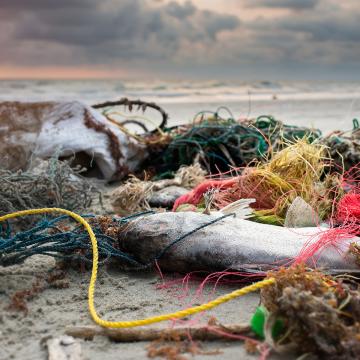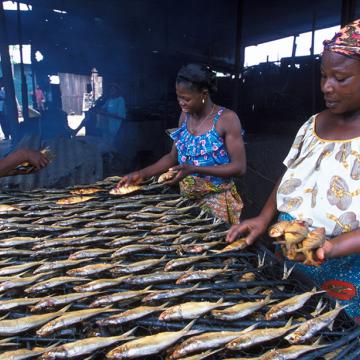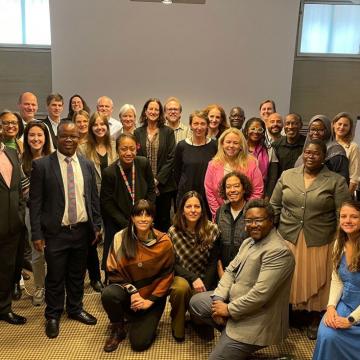-
NewsGreg Merrill, a PhD student in the University Program in Ecology, recently shared insights into his research focus, the Nowacek Lab, the impacts of his research and what he has learned working in the lab.
-
NewsBrianna Elliott, a PhD student in the Marine Science and Conservation program, recently shared insights into her research focus, the Read Lab, the impacts of her research and the most rewarding part of her research experience.
-
NewsPeople in areas where drinking water is contaminated with PFAS often want to know their PFAS blood levels but have trouble gaining access to reliable testing, which traditionally involves having their blood drawn by a medical professional.
-
NewsResearchers at Duke University’s Nicholas School of the Environment and Pratt School of Engineering are co-leading a new National Science Foundation-funded project that aims to boost economic development and climate resilience in coastal North Carolina through nature-based scientific and technological innovations.
-
NewsChina’s annual carbon dioxide (CO2) emissions exceeded 10 gigatons in 2018 for the first time in history and are expected to continue to grow. The nation’s leaders have pledged to peak CO2 emissions by 2030 and to reach carbon neutrality by 2060.
-
NewsThe Duke Plastic Pollution Working Group is working to find solutions, through innovative technologies, practices and policies that can help curb plastic waste, reduce its harmful impacts, and make Earth a greener, healthier home for us all.
-
-
NewsMalaria control programs in Amazonian Peru helped reduce the incidence of the deadly parasitic disease by 78%. That is, until the programs ceased to operate.
-
NewsThe Illuminating Hidden Harvests Report culminates a collaborative research effort led by the Food and Agriculture Organization of the United Nations (FAO), Duke University and WorldFish examining the multifaceted contributions of small-scale fisheries to sustainable development.
-
NewsDuke scholars and students were among more than 800 experts who contributed to global study calling for policymakers to consider contributions of small fisheries
-
NewsClimate change and rapid economic development have placed increased pressures on many coastal communities in recent years. Now, a new international study shows there is also a third force—the unintended consequences of conservation measures enacted with little or no consideration of local rights and needs—that can compound the harm. The study’s authors call the combined effects of these three forces a “triple exposure.”
-
NewsNew GIS-enabled analysis by a Duke University researcher maps what the far-reaching impacts to international trade and shipping could be if any of the world’s 11 busiest marine chokepoints, or shipping straits, are closed due to politics, piracy, vessel accidents, or other causes. Knowing in advance what to expect will help businesses and governments better navigate unexpected closures and reduce disruptions to international trade and global supply chains.
-
NewsSand mining happens on every inhabited continent and at nearly every conceivable scale. Some of it is legal; much of it is not. A new book from Duke University Press, “Vanishing Sands: Losing Beaches to Mining,” casts light on the shadowy world of sand mining through case studies that illuminate its disastrous impacts and a concluding chapter that proposes common-sense solutions.
-
News72% of Earth’s largest companies have pledged to reduce their plastic waste. A new study surveys what they’re doing (or not) to fulfill those promises.
-
NewsA new analysis by researchers from 15 institutions evaluates barriers that have hindered the implementation of early warning systems intended to help local health officials predict and proactively respond to outbreaks of climate-related diseases in the Tropics. The researchers use knowledge and tools from the field of implementation science to propose a four-step, science-based framework for overcoming these barriers and enhancing the success of the early warning systems.
